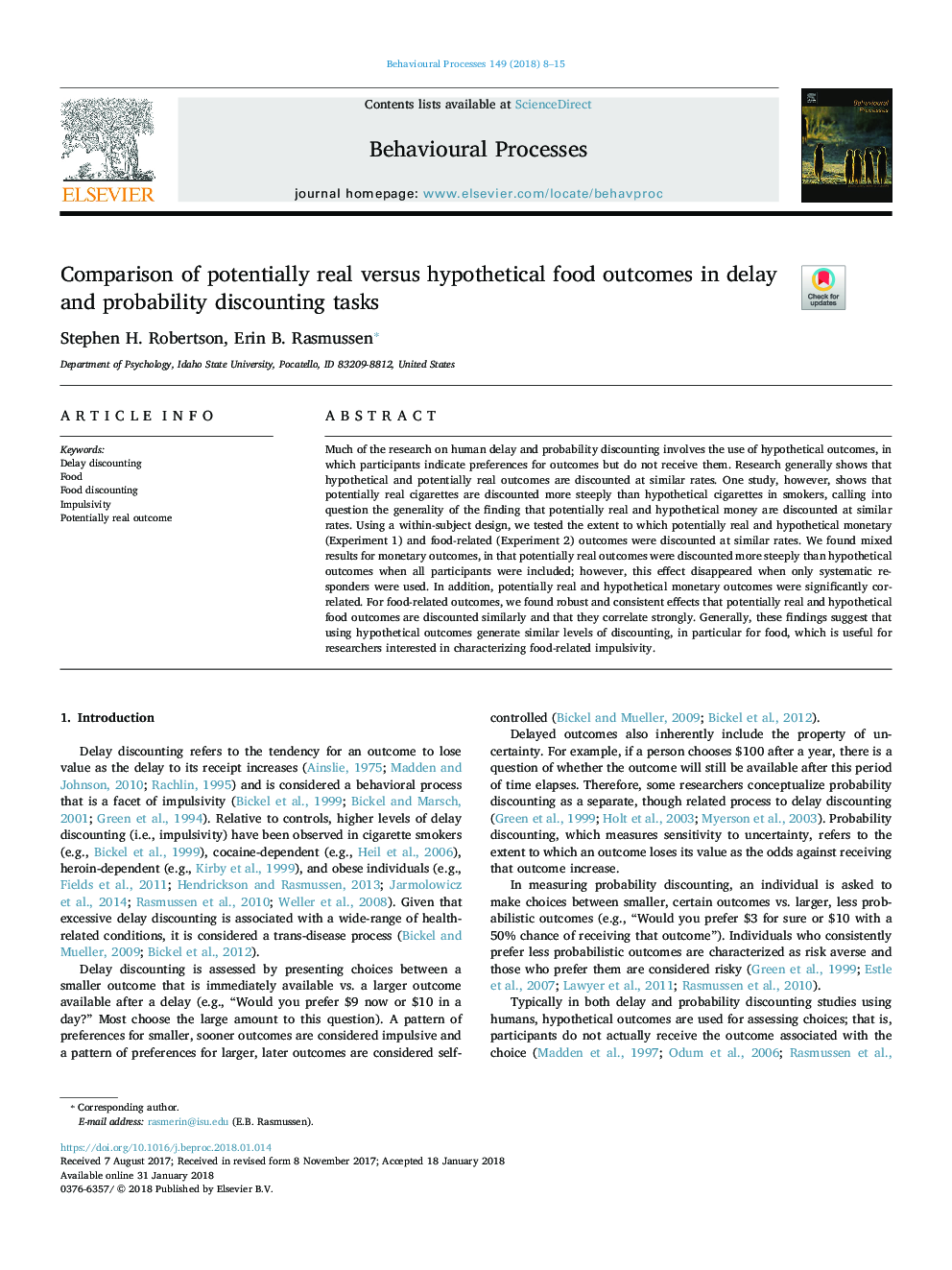| Article ID | Journal | Published Year | Pages | File Type |
|---|---|---|---|---|
| 8496993 | Behavioural Processes | 2018 | 8 Pages |
Abstract
Much of the research on human delay and probability discounting involves the use of hypothetical outcomes, in which participants indicate preferences for outcomes but do not receive them. Research generally shows that hypothetical and potentially real outcomes are discounted at similar rates. One study, however, shows that potentially real cigarettes are discounted more steeply than hypothetical cigarettes in smokers, calling into question the generality of the finding that potentially real and hypothetical money are discounted at similar rates. Using a within-subject design, we tested the extent to which potentially real and hypothetical monetary (Experiment 1) and food-related (Experiment 2) outcomes were discounted at similar rates. We found mixed results for monetary outcomes, in that potentially real outcomes were discounted more steeply than hypothetical outcomes when all participants were included; however, this effect disappeared when only systematic responders were used. In addition, potentially real and hypothetical monetary outcomes were significantly correlated. For food-related outcomes, we found robust and consistent effects that potentially real and hypothetical food outcomes are discounted similarly and that they correlate strongly. Generally, these findings suggest that using hypothetical outcomes generate similar levels of discounting, in particular for food, which is useful for researchers interested in characterizing food-related impulsivity.
Keywords
Related Topics
Life Sciences
Agricultural and Biological Sciences
Animal Science and Zoology
Authors
Stephen H. Robertson, Erin B. Rasmussen,
